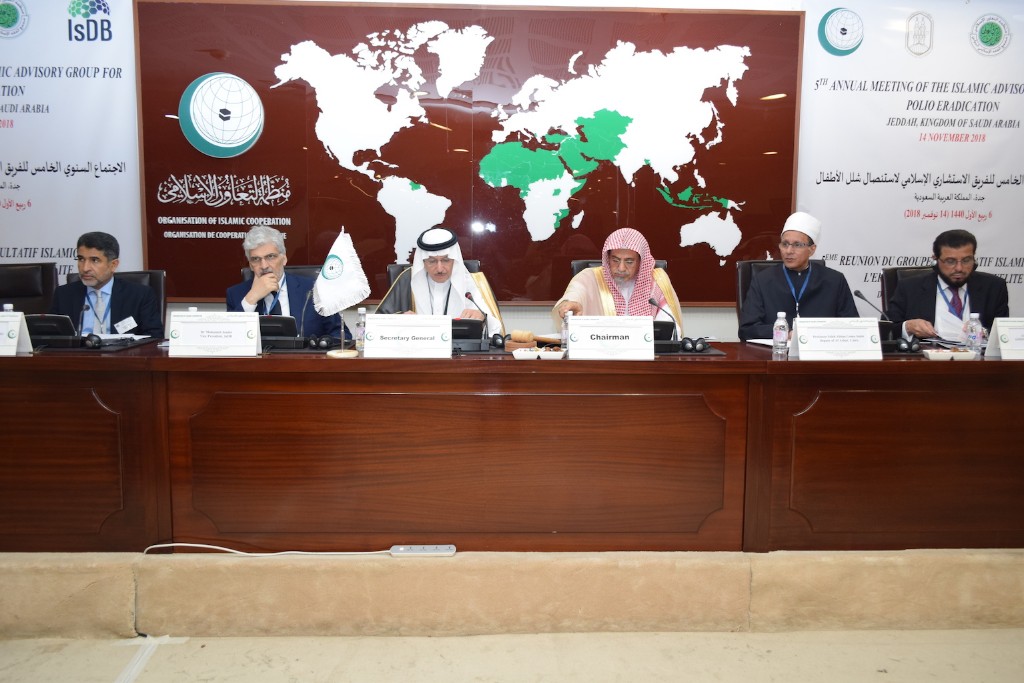
Date: 14/11/2018

The Islamic Advisory Group on Polio Eradication (IAG) held its Fifth Annual Meeting today 14 November 2018 at the headquarters of the Organization of Islamic Cooperation (OIC) in Jeddah.
During the meeting, the OIC International Islamic Fiqh Academy (IIFA), Al-Azhar Al-Sharif and Dar Al-Ifta Al-Massriyyah stressed the legality of the polio vaccines.
They urged parents and affected countries to facilitate the work of medical teams to immunize and protect children and to combat misleading fatwas, affirming at the same time that polio vaccination is not in conflict with the teachings of the noble Islamic religion.
The meeting was addressed by His Eminence Dr. Saleh Bin Abdullah Bin Humaid, President of the International Islamic Fiqh Academy, Member of the Council of Senior Scholars and Imam Alharam Almakki, H.E. Dr. Yousef A. Al-Othaimeen, Secretary General of the OIC, H.E. Professor Saleh Abbas Goma Saleh, Deputy of Al Azhar Al Sharif and envoy of His Eminence the Grand Imam of Al Azhar Al Sharif, His Eminence Dr Shawky Allam, Grand Mufti of the Arab Republic of Egypt (statement delivered on his behalf by Dr. Mohammad Wesam Khedr), His Excellency Dr. Mohamed Jouini, Vice President for Partnership Development at the Islamic Development Bank (IDB), His Excellency Dr. Ahmed Al Mandhari, Director of the WHO Regional Office for the Eastern Mediterranean.
For his part, the OIC Secretary General said that since there are misleading fatwas prohibiting polio vaccines in some regions in the Islamic world, he calls on IAG to support the proposal of the Islamic Conference of Health Ministers to establish a voluntary credible OIC network of Muslim doctors to help people with special health needs in Member States and alleviate their suffering.
Al-Othaimeen said that the number of polio cases has decreased significantly in affected countries, with only 27 cases reported as of end July 2018, which were restricted to just a few areas in Afghanistan and Pakistan. The number of missed children in high-risk areas in Pakistan has decreased from 47.23% to 12.71%, and the number of target killings for health workers has dropped from as high as 78 before the establishment of the IAG and its national affiliate in Pakistan to zero today.
The Secretary General stressed that IAG has also contributed to improving polio eradication initiatives in Afghanistan by decreasing religion-based refusals, raising public awareness of polio, improving access to some of the hard to reach areas, and increasing demand and use of polio vaccination.
He emphasized the need to double our efforts to ensure a polio-free world by the end of 2019, and commended IAG’s decision to expand its mandate to include routine immunizations, as well as other Mother and Child Health (MCH) priorities including breastfeeding, birth spacing, hygiene and sanitation, and care-seeking behavior during pregnancy.